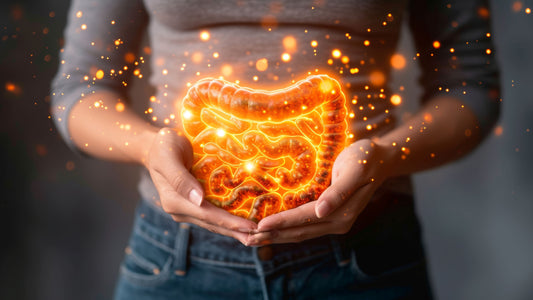I believe Urine pH testing is an important vital sign!
A vital sign is something we use to assess your wellbeing in the moment - your weight, blood pressure, and pulse are examples of vital signs we use in medicine.
When you come to our medical office, we often check your urine. Certainly we do for every annual exam and prenatal visit. But while pH is tested, it is rarely commented on but it should be.
In this article I want you to also understand the vital importance of testing your own urine pH and ketones too for that matter!
You will be enlightened and will use this feedback to improve your health! How exciting, right?!
Testing your urine is inexpensive, easy and safe. I always say, “Test, don’t guess,” and you can do this testing yourself in the comfort of your home, quickly finding out if your body is alkaline or acidic. If your urine strips also provide info on ketones you can additionally measure if your body is in fat-burning mode!
You can learn much more information, including reading about the substantial amount of research supporting the health benefits of maintaining an alkaline pH and ketones, here. This article also includes some of the simple lifestyle changes you can make that can dramatically affect these important biomarkers and improve your overall health. Improving these markers can alleviate hormone imbalance as well as address perimenopause and menopause symptoms, such as the dreaded hot flashes!
Here are just a few of the benefits relating to your maintaining an alkaline pH:
- Supports bone health and lean muscle mass,
- Reduces pain and inflammation,
- Lowers risk of disease (insulin resistance, diabetes, metabolic disorders, cardiovascular disease and hypertension),
- Supports the healthy balance of electrolyte levels our bodies require for quality sleep, circadian rhythm control and cortisol management,
- Increases diversity within the gut microbiome,
- And so much more...check out the many research references at the noted link...
You want to test your urine daily, and perhaps even multiple times daily at the start, at least until you find you are achieving your alkaline goal (7-8 range) and getting ketones (2+) each day. Don’t be frustrated if it takes a while to achieve both goals. Many women find they can start to consistently become alkaline (and that’s terrific in itself!) but may struggle for ketones. Just keep focusing on lifestyle changes that will best support you to achieve your goals (initially you may only see a trace of ketones but follow my many recommendations available here in my blog to improve!). After that, occasional testing is fine…or test when you start to feel “off”.
With daily testing you’ll start to see patterns of the triggers that influence your pH and ketones. Remember, diet is only part of whether your pH will test as alkaline or acidic. Lifestyle (sleep, gut health, bowel movements, exercise, toxins, hydration, stress, etc.) is also key. Ketones are affected by diet as well as whether you are incorporating intermittent fasting into your routine.

Test your first pee of the day in the morning when you first get up. You want to test before you eat or drink anything, and this will show you how your body is handling acidic nighttime functions (digestion from dinner, detoxification, metabolism of food and hormones, a poor night’s sleep/stress, etc.).
I recommend using my Keto-Green® Urine Test Strips as they provide an easy to use, high quality means to test both your acidity/alkalinity as well as to measure ketones your body is producing. If using my strips, the instructions and results will look like this:
- Hold the urine test strip on the side furthest away from the pH/ketone test pad.
- Pass the test pad in the urine stream (midstream) or dip it in a urine-filled cup.
- Set it flat on absorbent paper.
- After 40 seconds, match the test pad to the ketone color chart on the bottle.
- After 60 seconds, match the test pad to the pH alkaline color chart on the bottle.
- Record your results to track your numbers.

What do your results mean?
Look at the color-coded label to assess your results. Again, the ideal range for pH is 7-8 although you may not consistently stay in that range, especially when first testing. Look to achieve 2 ketones as a goal.


Checking our urine pH clues us into our cellular health, mineral status and lifestyle consequences. This is key to discovery! If you see pH results less than 7 your body is acidic. This means you are more prone to inflammation, poor detoxification, hormone imbalances, bone loss, and disease. Research supports this! We want to see a green test result!
Checking our ketones lets us know if we are burning fat or glucose. When your body is in “ketosis”, it is burning fat stores, ketone bodies are created, and this is what we are measuring and what the body uses as its source of energy. Studies have shown that a ketosis state supports weight loss, reduces inflammation and blood sugar issues (diabetes, insulin resistance) and supports greater overall health (including brain health!). We want to see a pink test result!
What can you do to improve your results?

- More greens! Lots of veggies and try my beautiful alkaline superfoods greens drink, Mighty Maca® Plus
- Lose the vices! Sugar, unhealthy fats, cigarettes, alcohol, and caffeine should be avoided, along with white, processed foods and too much animal protein. Eliminate common food sensitivities such as gluten and dairy. Snacking is considered a vice! Adhere to a keto diet and intermittent fasting to achieve ketosis.
- Clean up the toxins: This includes toxins in your environment (cleaning products, skincare, food storage plastics/cans) and in your food/water; as well as toxic emotions and negative thoughts. Support improved detox by increasing hydration; take a daily probiotic and try my Keto-Green® Protein Shake and Detox Support capsules.
- Relax and reconnect: Stress has a huge impact on your ability to be alkaline. It can cause constipation, IBS, indigestion, yeast overgrowth, and other issues that impact hormone balance, detoxification and overall gut health. Poor sleep can also make you acidic. Incorporate relaxation techniques/stress management, journaling, positivity, and gratitude, and just breathe… Incorporate activities that produce our love and bonding hormone, Oxytocin, too!
There is a lot more you can do as well.
Along with this easy self-testing, my book focuses on many other techniques that I have developed that can help you reduce your body’s acidity and lower your long-term risk for inflammation and disease. The book also includes a 10-Day Keto-Green Quick Start plan, recipes and many tools to help you measure and monitor your health and progress. I encourage you to order a copy of The Hormone Fix today.
P.S. Test, don't guess!
I've found over the years that the key to real results is keeping track of your progress. Use these Urinalysis Test Strips to start tracking your body's pH so you know for sure if you are on track to healthy fat loss, stable moods and balanced hormones. Get your own here!



